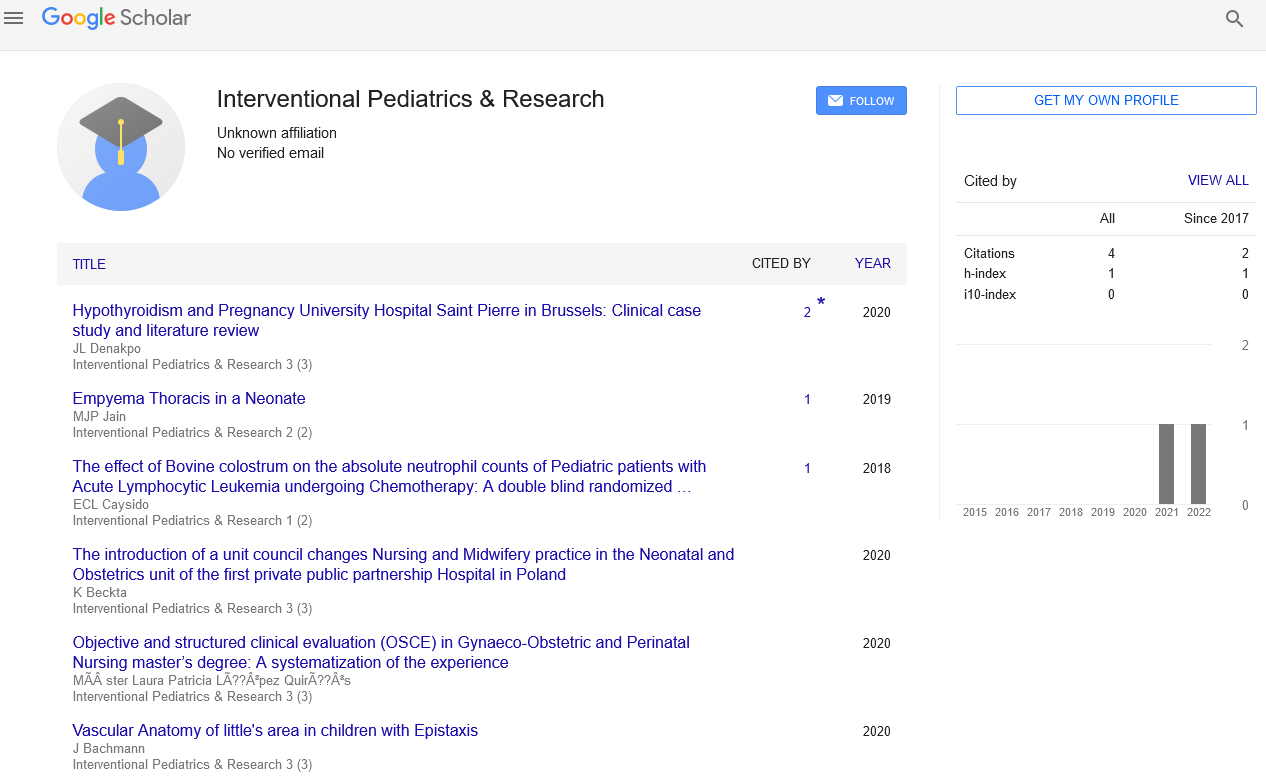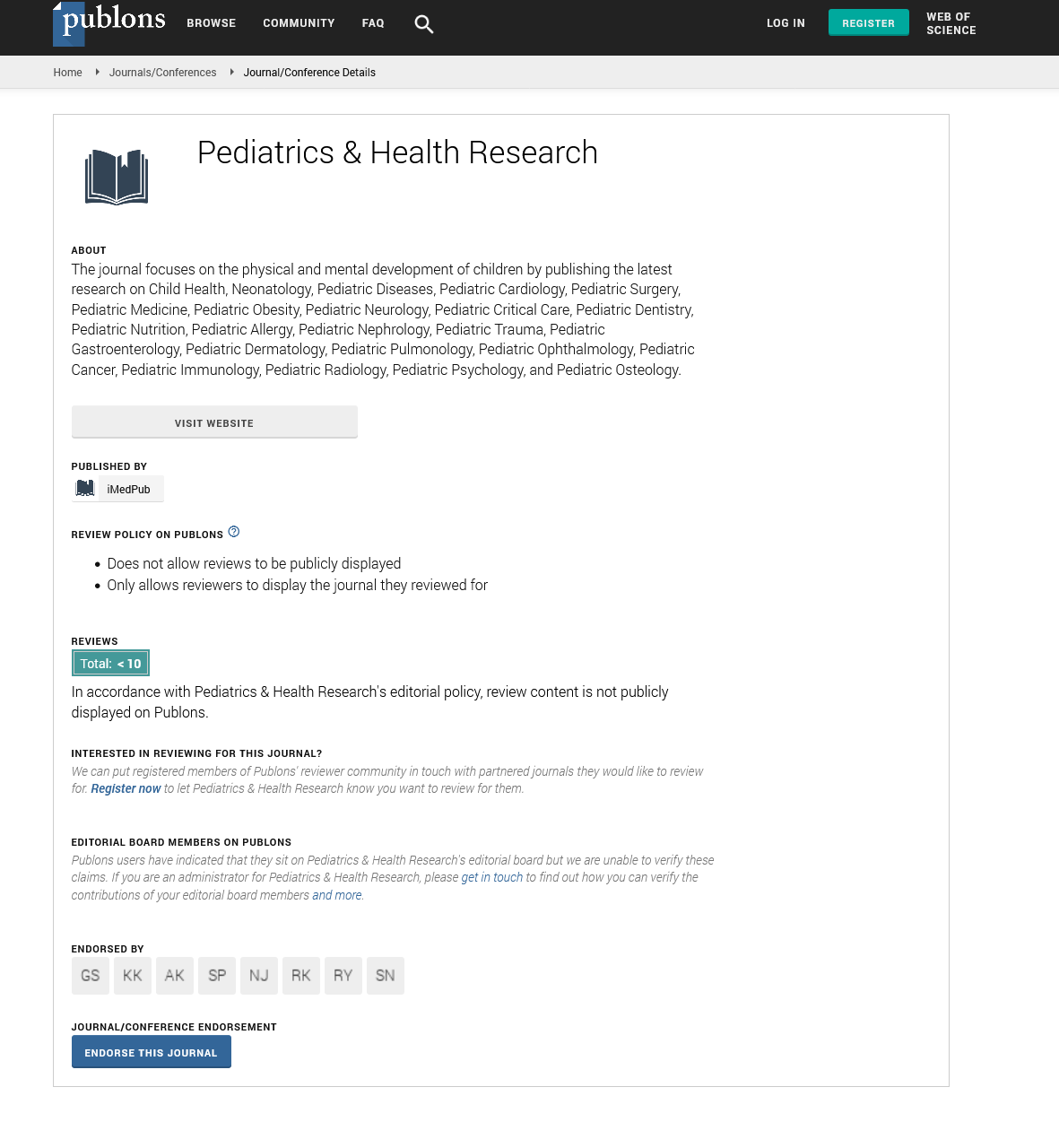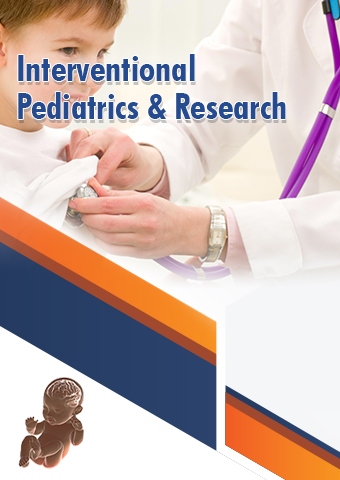Review Article - Interventional Pediatrics & Research (2023) Volume 6, Issue 1
Effective isotretinoin safety monitoring in a pediatric dermatology patient population: A novel approach to symptom surveying patients
Alexander Adisa*
Department of Pediatric Dermatology, Ethiopia
Department of Pediatric Dermatology, Ethiopia
E-mail: adisa_a@gmail.com
Received: 30-Jan-2023, Manuscript No. ipdr-23-88258; Editor assigned: 01-Feb-2023, Pre-QC No. ipdr-23- 88258(PQ); Reviewed: 15-Feb-2023, QC No. ipdr-23-88258; Revised: 17- Feb-2023, Manuscript No. ipdr-23- 88258(R); Published: 24-Feb-2023, DOI: 10.37532/ipdr.2023.6(1).04-06
Abstract
A random sample of patients who received isotretinoin treatment at a tertiary pediatric dermatology clinic completed an at each visit, so we reviewed their records retrospectively. Our objective was to determine the usefulness of an isotretinoin symptom survey as a screening tool for assessing and quantifying adverse effects, including psychiatric symptoms, during isotretinoin treatment in a pediatric population of various age groups. Responses were stratified according to age group and prior psychiatric history.
Introduction
The degree of comfort with which it is used in the pediatric population is limited by its adverse effects, particularly teratogenicity, and concerns regarding depression [1]. Due to the high risk of teratogenicity, strict policies and programs for preventing pregnancy have been implemented. Chelates and xerosis are common side effects that can be treated with a lot of emollients. Isotretinoin psychological effects are less well understood. The Food and Drug Administration (FDA) of the United States advised the use of signed informed consent forms and printed patient medication guides in 1998 due to the possibility of a link between depression, psychosis, suicidal ideation, and suicide [2]. Conflicting reports in the medical literature are based on studies using different research methods, so it is unclear whether isotretinoin is directly responsible for depression. Isotretinoin treatment for acne was linked in one cohort study to a reduction in depressive symptoms. The interpretation of data is hampered by confounding factors like adolescent and puberty-related mood swings [3].
Materials and Method
Symptoms of Psychosis
Patients were represented by the 12 surveys with self-reported “depression.” Depression symptoms began on average months earlier, with a standard deviation of 1.62 months. Patients reported experiencing mood swings. Patients who reported mood swings had an average onset of symptoms of one month and duration of 2.19 months. During treatment, 29 out of 102 individuals, or 28.43 percent, reported experiencing depression, mood swings, or both [4]. Reporting “depression” on the symptom survey typically led to a psychiatric consultation and, if necessary, medication discontinuation or a physician evaluation for major depression symptoms. After thorough evaluation, self-reported “depression” was almost always found to be more consistent with mood swings than true clinical depression. A small number of patients had been diagnosed with psychiatric conditions in the past. Before starting treatment, some patients had a history of depression [5]. While taking isotretinoin, only one of these four patients reported experiencing the following psychological effects: in the sixth month of treatment, one month of mood swings and one month of depression [6]. One of the 102 respondents, or 0.98 percent, had a history of mood swings in the past; however, this patient did not report any psychological symptoms during treatment.
Discussion
The treating physician is able to closely monitor the incidence and severity of various physical and psychological symptoms and adjust treatment accordingly by reviewing the symptom survey with the patient at each monthly appointment [7]. The incidence of adverse events has been determined by extensive screening criteria like the Beck Depression Inventory or a tencentimetre line of physical symptoms’ severity in previous studies. Although they provide useful data, they may not be suitable for widespread screening. In contrast, the patient or their family can effectively complete our survey at the beginning of their appointment in an outpatient clinical setting. We believe that the ISS is a useful screening tool despite the fact that the simplified format lacks the depth of the Beck Depression Inventory or other depression surveys of a similar nature [8]. Importantly, our incidence results were comparable to those of earlier studies that utilized more complex collection strategies. The ISS allowed the patient to self-report depression, suicidal ideation, or mood swings in a practice setting. To determine the severity of the symptoms that were affirmatively reported, prescribing physicians discussed the survey responses with the patient. We discovered that reports of psychological symptoms were uncommon. Patients with depression or mood swings were quickly identified and closely monitored with follow-up questions, medication adjustments, and, if necessary, psychological consultation using the ISS [9]. The monthly ISS documentation of individual psychological symptoms revealed that these reports were typically brief and resolved without changing the dose of isotretinoin. A small number of patients had previously been diagnosed with a mental illness. While taking isotretinoin, the data show that these patients were not more likely to experience psychological symptoms [10]. This indicates that a patient’s prior psychiatric history may not necessarily preclude treatment with isotretinoin. Individual symptom incidences from which to compare are scarce in published studies. At the time of this publication, there were no studies comparing the prevalence of mood swings. A prospective study found that after taking isotretinoin for four months, 4% of patients experienced depressive symptoms. 10.78% of patients self-reported depression symptoms for one or two months during treatment, according to our results for patient-reported depressive symptoms. Given that symptoms were self-reported and that patients receiving isotretinoin treatment may be hyper-vigilant to possible depressive symptoms due to prescribing physician and black-box medication warnings, the number of patients reporting depression in our study may be exaggerated. Patients only reported depressive symptoms on 12/729 monthly surveys (1.65%), despite the possibility of overreporting depression on self-completed surveys. If isotretinoin treatment is to blame, this finding suggests that depressive symptoms may be shortlived. Additionally, patients tended to report depressive symptoms later in treatment, with the typical onset occurring approximately 14 weeks into treatment. This result is similar to that of who found that the average amount of time spent in therapy before depression started was 14 weeks. Our study’s findings are comparable to the incidence rate and severity assessment of physical symptoms reported by. Patients were asked to select between the categories of “mild,” “moderate,” or “severe” in our symptom survey, whereas McLane used a 10-cm line on which patients subjectively indicated the severity of their symptoms. Even though these two approaches are different, McLane found similar results for the more common physical symptoms. The ISS is brief, listing both physical and mental symptoms on a single page. A screening tool that aims to provide optimal results through monthly patient compliance should not be underestimated for its ease of completion.
References
- Farrell LN, Strauss JS, Stranieri AM. The treatment of severe cystic acne with 13-cis-retinoic acid: evaluation of sebum production and the clinical response in a multiple-dose trial. J Am Acad Dermatol. 3, 602–614 (1980).
- Magin P, Pond D, Smith W. Isotretinoin, depression and suicide: a review of the evidence. Br J Gen Pract. 55, 134–142 (2005).
- O’Donnell J. Overview of existing research and information linking isotretinoin (accutane), depression, psychosis, and suicide. Am J Ther. 10, 148–210 (2003).
- Mitchell AA, Van Bennekom CM, Louik C. A pregnancy-prevention program in women of childbearing age receiving isotretinoin. N Engl J Med. 333, 101–107 (1995).
- Jick SS, Dremers HM, Vasilakis-Scaramozza C. Isotretinoin use and risk of depression, psychotic symptoms, suicide, and attempted suicide. Arch Dermatol. 136, 1231–1236 (2000).
- Azoulay L, Blais L, Koren G et al. Isotretinoin and the risk of depression in patients with acne vulgaris: a case-crossover study. J Clin Psychiatry. 69, 526–558 (2008).
- Kaymak Y, Kalay M, Ilter N et al. Incidence of depression related to isotretinoin treatment in 100 acne vulgaris patients. Psychol Rep. 99, 897–906 (2006).
- Wysowski DK, Pitts M, Beitz J. An analysis of reports of depression and suicide in patients treated with isotretinoin. J Am Acad Dermatol. 45, 515–524 (2001).
- Chia CY, Lane W, Chibnall J. Isotretinoin therapy and mood changes in adolescents with moderate to severe acne: a cohort study. Arch Dermatol. 141, 557–617 (2005).
- Bruno NP, Beacham BE, Burnett JW. Adverse effects of isotretinoin therapy. Cutis. 33, 484-489 (1984).
Indexed at, Google Scholar, Crossref
Indexed at, Google Scholar, Crossref
Indexed at, Google Scholar, Crossref
Indexed at, Google Scholar, Crossref
Indexed at, Google Scholar, Crossref
Indexed at, Google Scholar, Crossref
Indexed at, Google Scholar, Crossref
Indexed at, Google Scholar, Crossref


